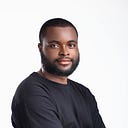Dealing with information overload while learning new skill
Technology has improved significantly in the last two decades. For reference, James Russell created the Compact disk (CD) in 1982 with a maximum storage capacity of 700MB. In 1995, 13 years later, Sony, Panasonic, Philips, and Toshiba introduced Digital Video Disk (DVD) with a maximum capacity of 1.46GB, roughly twice the compact disk capacity. Eight years later, in 2003, Sony unveiled Blu-ray Optical Disc, and this time, it can store up to 25GB of data which is 17x more storage capacity. In 2015, Samsung announced the ‘World’s Largest’ Storage Device for Data Centers with 16TB (SSD) capacity.
Growing up, I remember listening to music on disk; each disk contains 5–15 songs. I also remember buying movies on disk; my Nigerian followers will recognize “15 in one” they want you to think it is 15 movies in 1 disk, but it is mostly about 5 -7 movies cut up in sections. Streaming services came and changed all that, now Netflix alone has over 15,000 titles, and Spotify has over 70 million tracks all in one place, no DVD required, no Disk limitations, no physical copy of a song you may only listen to once or twice.
Technology and the internet brought information closer to us. However, while there are merits to the internet, it also brought about information overload. “Information overload, also known as information anxiety, is the difficulty in understanding an issue and effectively making decisions when one has too much information about that issue and is generally associated with the excessive quantity of daily information.” Too much choice overwhelms the brain, the brain loathes choices, and corporations like Spotify and Netflix know this. It is one of the reasons they developed and kept improving their recommendation algorithms.
I started my Data Science journey in late 2020; I remember searching phrases like “how to get started with data science,” “how to become a data analyst,” “skills needed to become a data analyst.” Oh my! The information I read was overwhelming, but most articles had a common theme: knowledge of Excel, SQL, and Visualization. Searching SQL for beginners brought on a problem; what type of SQL should I learn? Since there are PostgreSQL, MySQL, Microsoft SQL, I decided to research them to know which is objectively better and before I knew it, I had already entered a rabbit hole. Exploring visualization tools was also chaotic as there were so many options, Tableau, Microsoft Power Bi, Excel Matplotlib in python and R.
How do you deal with information overload when trying to acquire a new skill?
· Try taking a certification course. As a newbie with little knowledge in the field you are trying to get into, certification courses can be that bridge you need. Certification courses or boot camp has a well-curated syllable or structure created by experts in the field, which removes the problem of making initial choices as beginners. As you grow or get more acquainted in that field, you can choose tools that best suit you; after all, most of the tools are similar and have the same fundamental structure. The Google Professional Certification course offered on Coursera or Kaggle are great places to get started on your data science journey.
· Do not multitask. Many people try to speed run learning by doing more than one thing at a time. However, acquiring a new skill is a marathon and not a sprint. Learning more than one skill increases mental overhead and makes coordinating efforts on each skill much more complicated. Just figuring out what skill to learn on a particular day can be a chore, never mind putting in the time to learn it. So, stick to one skill, know it sufficiently, and move to the next one.
· Take on projects. Projects sharpen the skills you already have while adding a new skill set. For example, you can learn SQL, Python, and Tableau skills from reading or watching tutorials, but you cannot acquire problem-solving, self-confidence, critical thinking, and project management skills through reading reading reading!. In addition, projects reduce information overload because you’re only using the tools necessary to complete the project.
· Take breaks. “People who take a 15-minute break every couple of hours are much more efficient in the long run”. Remember, it is a marathon, not a sprint. So, give the brain a chance to hit the reset button in a part of the brain. Taking a break improves productivity and eliminates diminishing returns when learning.
To reiterate, taking certifications reduces the choices to make when learning new skills. Taking each skill one at a time reduces complications while learning. Projects reinforce what you already know and equip you with a unique skill set. And lastly, taking breaks to give your brain time to recharge is very important.
Please follow to see more content like this.
Photo credit: https://www.freepik.com/vectors/brain
